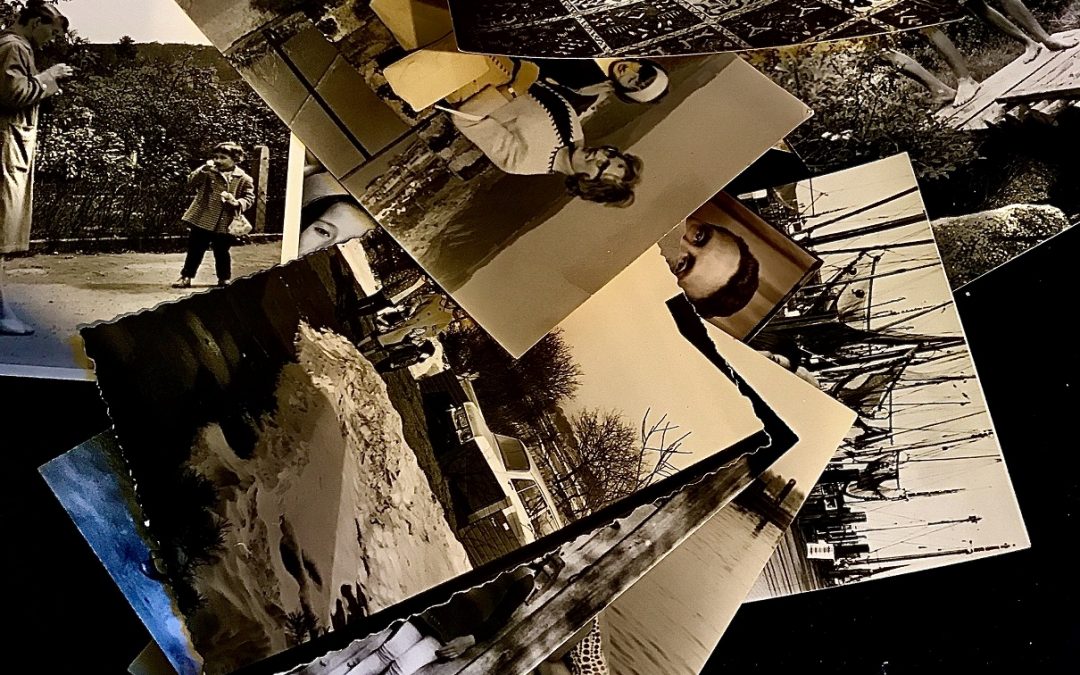My sister died after suffering for several months from breast cancer, and her daughter Christine heard about her hopeless situation only when she was already sedated with morphine. My sister’s situation deteriorated very quickly, and it all ended about a year ago. These events prompted me to contact once again my niece, who had disappeared years ago to withdraw into solitude. And so I wrote to her, despite the pain that I still felt from our unhappy encounter several years earlier.
This time Christine responded quite openly to my proposal to meet her for coffee. When we finally met, she looked more peaceful and friendly than I had ever remembered her.
To my surprise, in sharp contrast to her distant attitude in our last meeting, she embraced me warmly. “It’s so good to see you, Alma. I was longing to talk with somebody from the family. I was so confused and disoriented when Mom died, without…”
“Without a chance to say goodbye,” I helped her.
“Yes, you’re right. And it’s still painful. But it had a strange effect on me.”
We sat down. Soon she began telling me what had happened to her.
After receiving the news of her mother’s death, Christine started delving into memories and looking at photo albums from her past. One day, when browsing through an album from her mother’s youth, Christine halted. The face in one photo reminded her of herself. She put down the album, slowly stood up from her armchair, and walked over to the mirror. Here she stood and looked intensely at the image that was staring back at her.
“Who is this woman in front of me? Is it pain that I see on her face? Or are my inner wounds visible only to my eyes?”
In the inner dialogue that followed, Christine looked back at her past, her losses and suffering. She reflected on the feeling that had been torturing her since childhood of not receiving enough love from her mother, and on how she had kept yearning and searching for it all her life.
Abruptly Christine turned away from the mirror, went back to the family album, and examined the photo again. It showed her mother as a young girl looking directly at the camera, just as she herself looked into the mirror a few moments ago. She noted the girl’s eyes, and could sense the fear they expressed and the anxiety and pain in them.
“These could be my own eyes,” she said to herself, “with the same anguish and suffering I know so well.”
The moment she identified her own pain with the pain in her mother‘s eyes, she was overcome by a wave of compassion for her mother. She was shaken by a torrent of tears.
Later that day, Christine stepped out of her house of solitude. She needed some distraction from the intensity of her emotions. She went to the nearby town and walked aimlessly through the streets.
As she was walking, her sense of oppression lifted, and she started paying more attention to the people around her. And suddenly she noticed – how strange and uplifting! – a sense of compassion gently filling her heart. It was the same compassion she had felt for her mother in the photo, but now it was compassion for each unknown face she saw, for each passerby, for everybody.
Christine looked at me, closed her eyes as if relishing her memory, then spoke again. “Alma, this was one of the strangest thing that ever happened to me. I suddenly felt a different person. All the bitterness and anger that used to fill me were gone, and I could hardly recognize myself. I could embrace everybody!”
She smiled, and there was peace in her eyes. “I can still feel it in me. Do you think it will last?”
“If it was a sincere compassion, Christine, then I believe it would persist. And it might help you overcome your past.”
She took my hand in her hands, and for a while we sat together quietly.
We hugged each other when we said goodbye. “Who knows what she will have to tell me next time I see her,” I thought to myself. “Perhaps these moments by the mirror will indeed change her attitude to life.”
As I was saying these words, I recalled a short text by the Spanish philosopher Miguel de Unamuno which I had recently read on the Agora website. I am not enough of a philosopher to read professional books – the brief texts on Agora are enough for me. And as far as I understand Unamuno, his words seem to be mysteriously about Christine and her mother:
“… from this love or compassion for yourself, from this intense despair, from the knowledge that you will not exist after you die just as you did not exist before your birth, you go on to feel compassion for – that is, love to – all your fellow human beings in this world of appearance, those miserable shadows who walk about, going from nothingness to nothingness, mere sparks of consciousness shining for a moment in the infinite and eternal darkness.”
(Miguel de Unamuno, THE TRAGIC SENSE OF LIFE, 1912)
= = =
TO READ ON AGORA MORE FROM UNAMUNO, AND ABOUT HIM, SEE:

